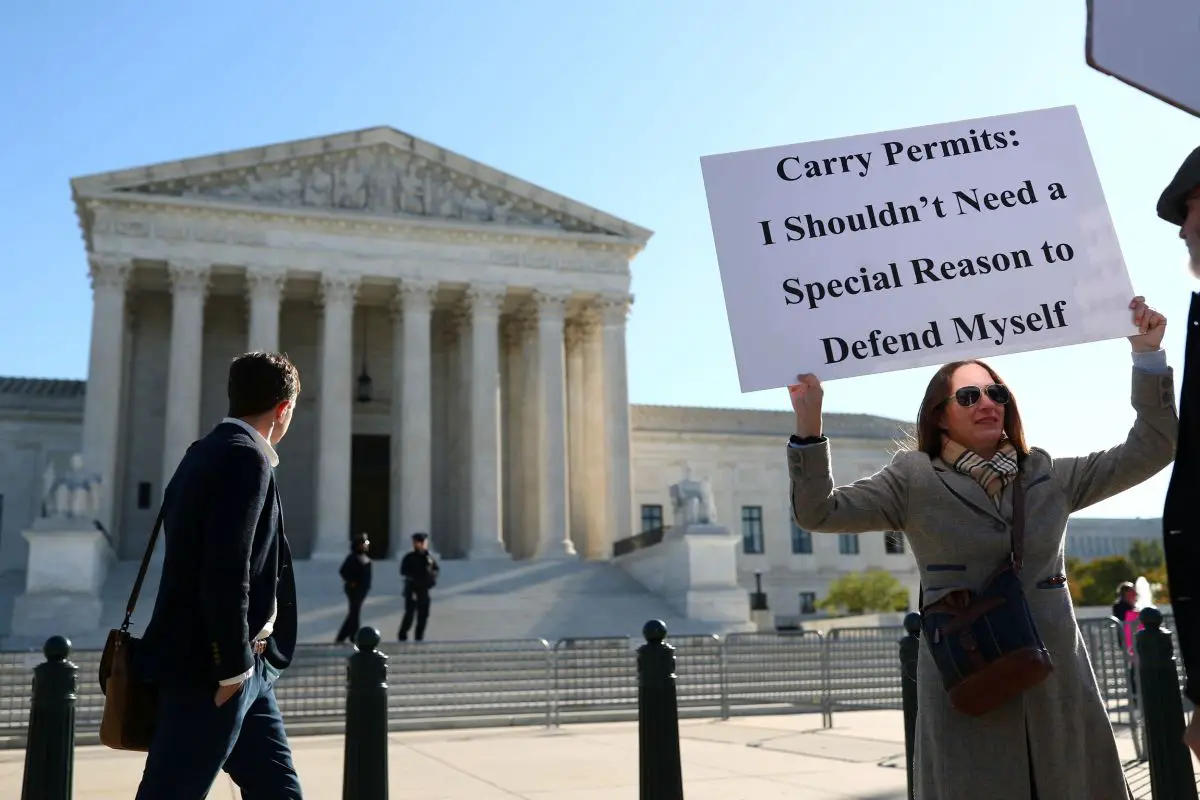New York is one of a handful of states still holding on to “may issue” concealed carry laws.
In other words, your right to legally carry a firearm outside your home for self-defense has not been something you could exercise in New York State without providing a justifiable reason to do so. Without such cause, which was often subjectively determined by a county judge, your right was restricted to owning a gun inside your home.
The so-called “unrestricted” concealed carry licenses in New York have been basically impossible to get unless you drive an armored truck for a living.
That practice has now ended thanks to a 6-3 Supreme Court ruling striking down New York’s law, a move that will likely reverberate across the country in other states with similarly restrictive concealed carry laws. The result will be a “shall issue” procedure which means that unless the state can find a reason to deny your permit, they legally must provide you an unrestricted concealed carry permit to carry a gun off your property.
Justice Thomas wrote the opinion which concluded New York’s law grossly violated the constitution by subjectively denying a right to bear arms:
The Supreme Court on Thursday struck down a New York law that placed strict restrictions on carrying concealed firearms in public for self defense, finding its requirement that applicants seeking a concealed carry license demonstrate a “proper cause” is unconstitutional.
In a 6-3 ruling, the Supreme Court reversed a lower court decision upholding New York’s 108-year-old law limiting who can obtain a license to carry a concealed handgun in public. Proponents of the measure warned that a ruling from the high court invalidating it could threaten gun restrictions in several states and lead to more firearms on city streets.
Justice Clarence Thomas delivered the majority opinion for the ideologically divided court, writing that New York’s “proper-cause requirement” prevented law-abiding citizens from exercising their Second Amendment right, and its licensing regime is unconstitutional.
It’s a win for 2nd Amendment supporters that’s been a long time coming. After previous cases paved the way in recent decades to strike down some of these onerous laws, New York’s was one the last dominos to fall.
The irony here is that as the U.S. Senate votes to pass some convoluted gun control legislation, the Supreme Court moved the ball in the other direction and restored the rights of New York residents to exercise their right of self-defense.
Based on the ruling, six states including New York may be affected by the case:
In a concurring opinion by Justice Brett Kavanaugh and joined by Chief Justice John Roberts, Kavanaugh noted the court’s decision does not prohibit states from imposing licensing requirements for carrying handguns, and leaves untouched existing regimes in 43 states. Instead, it only impacts more stringent licensing rules in effect in six states, including New York.
The New York permitting law at the crux of the dispute dates back to 1913 and requires residents seeking a license to carry a gun outside the home to demonstrate a “proper cause” to obtain one, which state courts have said is a “special need for self-protection.”
The comparison, for the sake of comparison, would be like saying you need a “proper cause” to exercise your right to free speech or free expression of religion. That sort of limit wouldn’t stand and neither does an arbitrary limit on an explicitly granted constitutional right to carry a firearm for self-defense.
While critics have sounded hysterical over the ruling warning it will lead to a spike in gun violence, the issue at hand applies to gun owners who are inherently law-abiding. Criminals have always carried weapons anywhere they go, laws be damned. In this case, law-abiding citizens who wish to carry a weapon for self-defense to a grocery store or a park, for example, would finally be allowed to do so.
The last big item on the SCOTUS agenda is the Dobbs case which could overturn Roe v. Wade and alter the abortion conversation moving forward. That case likely won’t come until the last day of the court’s term next week.
Donate Now to Support Election Central
- Help defend independent journalism
- Directly support this website and our efforts
